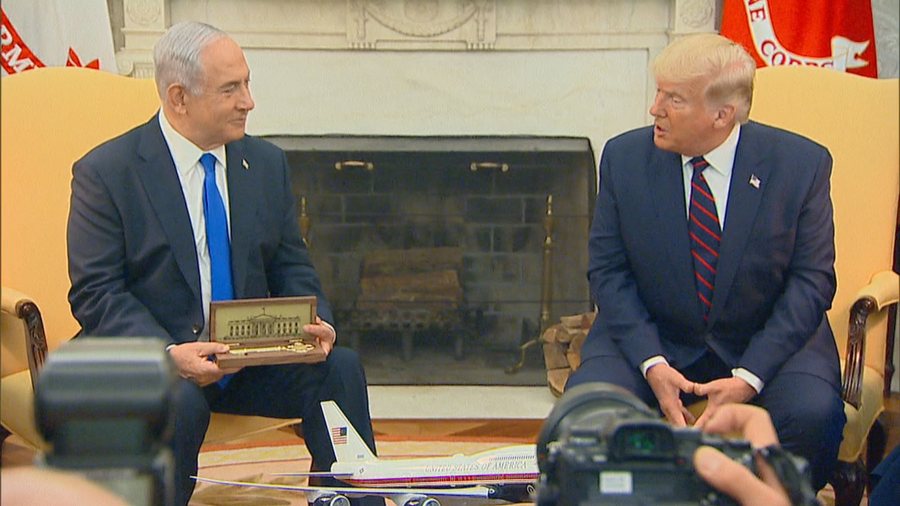
Donald Trump welcomes Benjamin Netanyahu to the White House with a billion new weapons and an executive order to impose maximum pressure on Iran
The Trump administration has asked congressional leaders to approve an additional $1 billion in military aid to Israel, at a time when the White House is working to preserve a fragile ceasefire in Gaza, the Wall Street Journal reported.
The planned arms sales include 4,700 1000-pound bombs worth more than $700 million, as well as armored bulldozers built by Caterpillar, worth more than $300 million, the officials said. The directive is intended to deny the Tehran regime any chance of obtaining a nuclear weapon and counter Iran’s “malign influence.” The move comes after U.S. intelligence officials raised concerns that a secret team of Iranian scientists is exploring a faster, if more rudimentary, approach to developing a nuclear weapon. The information was gathered in the final months of the Biden administration, then passed on to President Trump’s national security team during the transition.
The new requests for weapons, which will be paid for from billions of dollars in annual US military aid to Israel, come as Israeli Prime Minister Benjamin Netanyahu is visiting Washington and will meet with President Trump on Tuesday to discuss the Gaza ceasefire, a separate ceasefire in Lebanon and tensions in the broader Middle East.
Netanyahu and other Israeli officials are expected to pressure Trump to move forward with a separate batch of arms transfers that were initially requested by the Biden administration, totaling more than $8 billion in new bombs, missiles and artillery rounds. The proposed new arms deals come at a key moment in U.S.-Israeli relations. In addition to the Gaza ceasefire, Israel is also engaged in a tenuous ceasefire with Hezbollah in Lebanon. In late January, Trump supported Israel’s decision to keep some military forces stationed in southern Lebanon while the ceasefire agreement was implemented.
The State Department notifies Congress when the U.S. plans to sell weapons above specific dollar thresholds. The department provides information to the House Foreign Relations and Senate committees in advance of these potential sales, followed by formal notification to Congress. The committee must approve the sales. (A2 Televizion)











